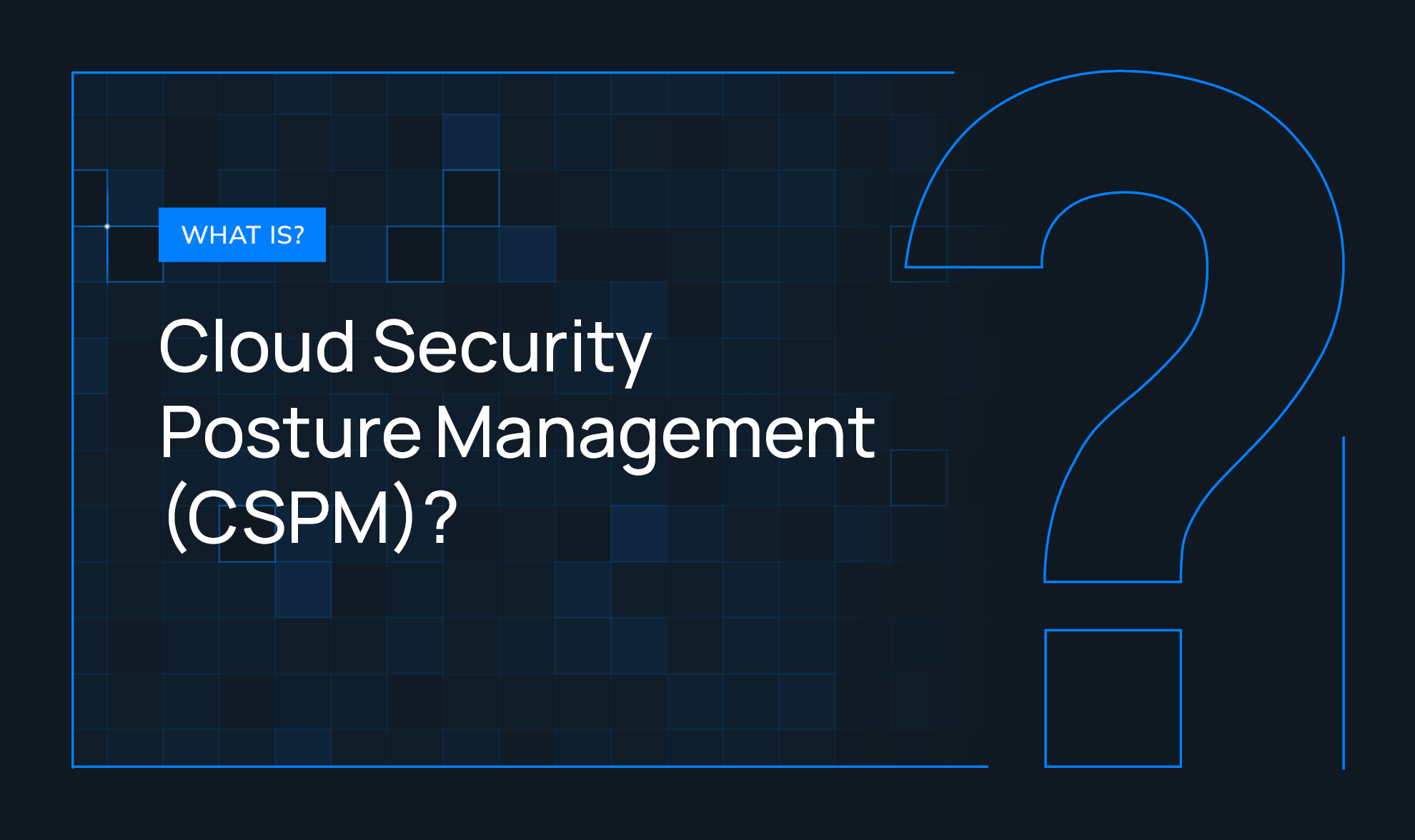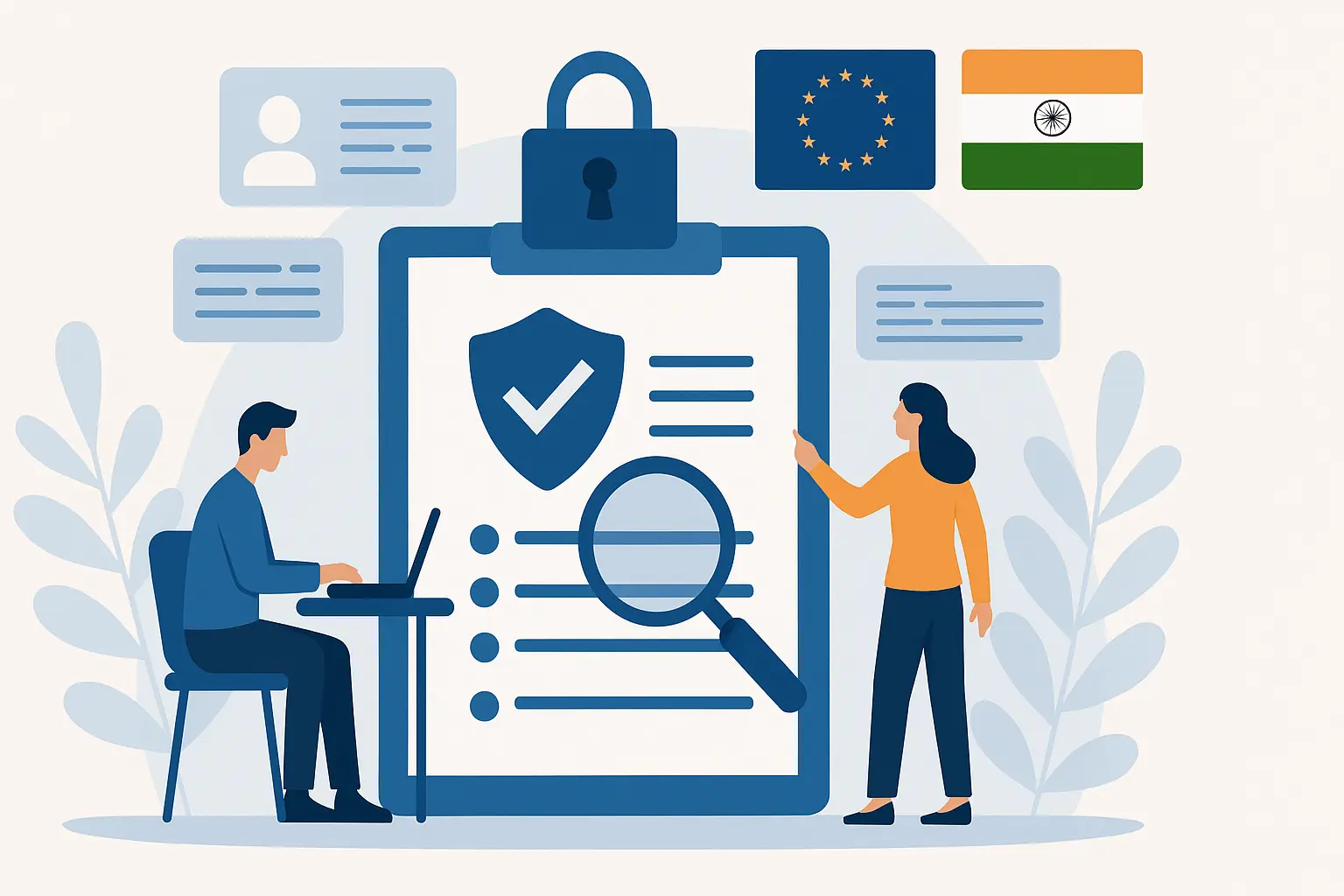
Why Data Governance Matters for GDPR and DPDP Compliance
These days every business is full of data, and it can be a tremendous challenge to handle. Ineffective data management can result in incorrect decisions or even legal issues with companies.
That is where data governance comes in. It is a way of establishing specific guidelines on data usage, data security, and data trustworthiness. Knowing what data governance is keeps businesses on path and out of risks.
A data governance strategy is essential as laws, such as GDPR and DPDP, promote a strict approach to data care. Applications on sites such as Redacto can facilitate this process by assisting businesses to comply with these regulations.
What is Data Governance?
Data governance refers to a collection of policies and practices that enable the management of data in an accurate, secure, and useful way to a business. It is about ensuring that data is trustworthy to make decisions.
This definition of data governance encompasses establishing policies regarding data privileges, data storage, and data security. In contrast to the broader tech processes discussed in data governance vs data management, governance deals with oversight and standards.
Data governance meaning is also connected to compliance with the law such as GDPR and DPDP. It makes sure that companies use personal info appropriately. By having an effective data governance platform, companies minimize mistakes, increase confidence, and remain in compliance in the modern data-driven economy.
What is a Data Governance Framework?
A data governance framework is a structured plan to manage data in a business. It’s key for setting rules to keep data safe, accurate, and useful.
Key Elements of a Data Governance Framework
An infrastructure that defines how a company manages its valuable data is referred to as a data governance framework. It encompasses objectives such as enhancing data quality or complying with regulations such as GDPR and DPDP. It also establishes who has the control data owner/stewards; responsibility to ensure data conformance and security.
Not everyone fits under the same data governance frameworks model. All are customized to fit the data environment of a business, its industry requirements, and regulations such as CCPA or HIPAA. The plans usually give information about data standards, policies and checking to ensure identification of whether the rules are obeyed through regular audit.
Program Goals, Roles, and Duties in Governance
Data governance frameworks begin with objectives such as making decisions with better data or enabling compliance. They monitor improvement with indicators such as reduced data errors or increased speed. Under a data governance strategy, goals ensure data is complete and the staff understands how to manage it.
They also tabulate important actors. The plan is steered by a steering committee of the top leaders and data owners ensure that certain data is accurate. Business teams use the data, and daily tasks are handled by data stewards. Collectively, these functions help data governance solutions to operate effectively.
Data Standards, Policies, and Processes
A powerful data governance model establishes the parameters of data formats, models and naming to maintain consistency. It is a representation of the flow of information in a company. These policies are designed to set clear objectives and maintain data reliability for use.
It also selects the tools and systems to support the plan. Access restrictions, called data access governance in some frameworks, only allow the appropriate individuals to view specific information. This secures sensitive information and assists in complying with severe regulations such as GDPR or DPDP with no risks.
Auditing Procedures for Compliance
Data governance frameworks contain testing and tracking steps to monitor adherence to data rules. Audits, or regular checks, indicate whether or not the staff adhere to the plan and identify aspects that require improvement. This makes the program open and simple to explain.
Audits also demonstrate the adherence to the legislation such as GDPR and CCPA. They assist a company to be prepared in case of new information or technological modifications. Through the best practices of data governance, these checks can ensure that there are no legal concerns cropping up due to the improper handling of data.
Role of Data Governance Tools
Data governance frameworks involve a lot of technology. The data governance software and the data governance tools assist them in identifying and classifying the data in an automatic manner. They impose access regulations and defend privacy to align with regulations such as DPDP.
Such data governance solutions can frequently govern data catalogs, monitor the history of data, and provide visuals to comprehend complicated sets. They accommodate various types of data and enable easier identification of patterns or concerns, which presents a good data governance platform within any company.
Benefits of Data Governance
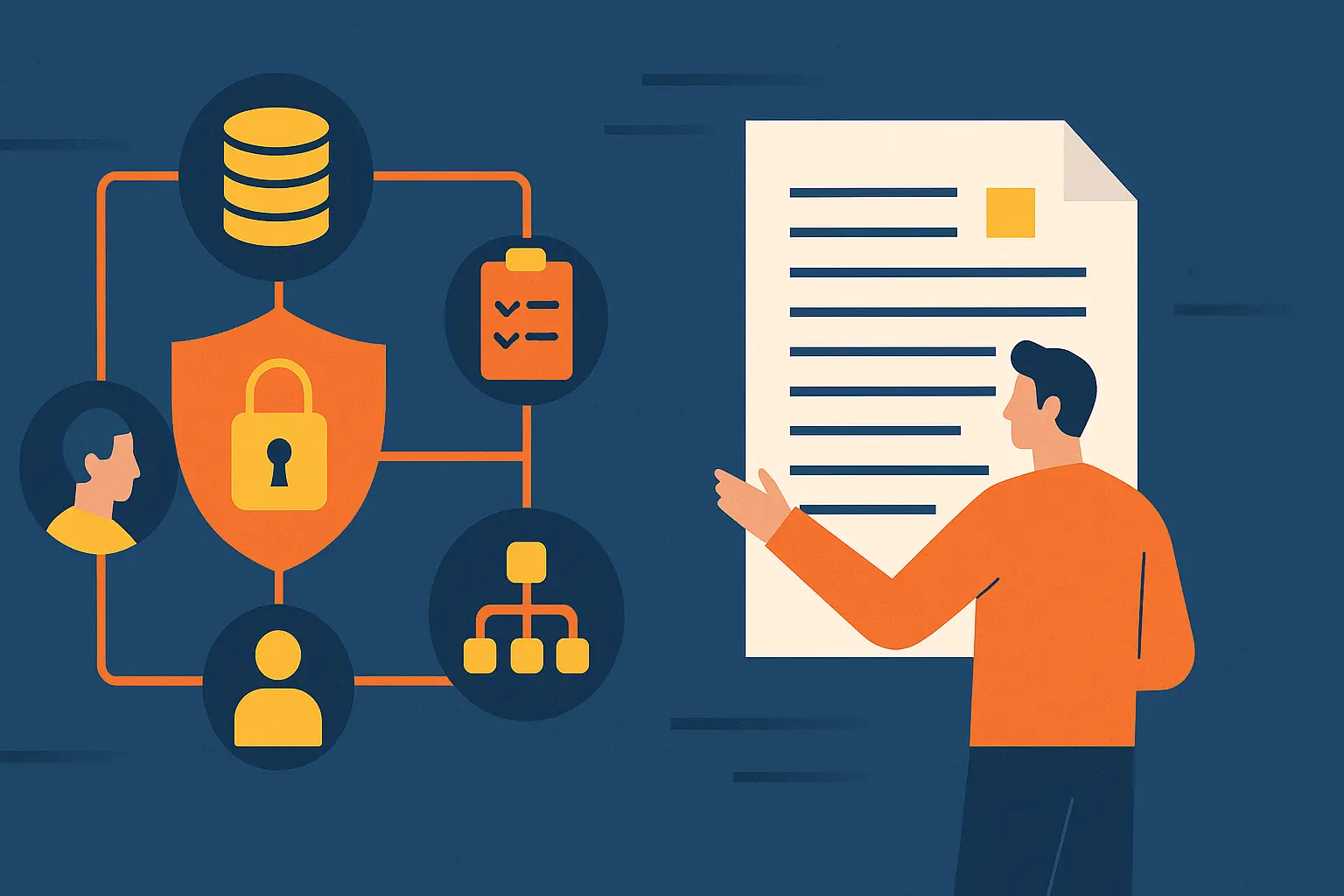
Data governance brings a lot of value to businesses handling data every day. It’s not just about rules—it’s about making data work better for you. Here are the key benefits of data governance that can help any company.
Improved Data Quality for Better Decisions
Getting data that you can trust can be regarded as one of the major benefits of data governance. With rules, data errors and repetitions decrease significantly. It implies that reports or customer information are truthful, and this guides the leaders in making informed decisions without speculations.
Sectors such as the bank or health experience huge gains. A data governance plan would make sure that loan or patient record figures are on point, no expensive errors are made. It establishes a solid foundation to decision making, and allows the business to expand with a level of confidence based on trusted information.
Stronger Compliance with Privacy Laws
Another benefit of data governance is staying on the right side of strict laws like GDPR, DPDP, and CCPA. It sets up ways to protect personal data and track how it’s used. This cuts the risk of fines or legal trouble from data mishaps.
With a data governance framework, companies show they care about privacy. They can prove to regulators that data handling meets standards. This is key for trust, especially in sectors like online sales or health where data rules are tight.
Increased Efficiency and Cost Savings
Data governance saves time and money, a huge benefit of data governance for any business. Clear rules and data governance tools speed up finding and using data. Teams don’t waste hours fixing bad info or searching for the right files.
This efficiency also lowers costs. Fewer data errors mean less rework, and faster processes get products or services out quicker. A data governance platform automates much of this, helping companies focus on growth instead of cleanup.
Enhanced Trust and Data Literacy
One of the greatest data governance benefits is establishing trust among customers and employees. When data is managed properly, clients are aware that their information is secure, which is important in regulations such as GDPR. It demonstrates a company is concerned about privacy, enhancing its image.
Inside the company, data governance best practices teach employees how to use data right. This raises data literacy—everyone understands its value and rules. Teams work better together, and a data governance strategy ensures no one misuses or mishandles critical info.
Conclusion
Data governance is vital for trusting data and following laws like GDPR and DPDP. A strong data governance strategy boosts business success by keeping info safe and reliable.
Redacto helps with data governance solutions like Data Discovery to meet these rules. Explore what is data governance further and build your plan to protect data and grow confidently today!
FAQs
1. What is Data Governance?
Data governance is setting rules to manage data for accuracy and safety. What is data governance means ensuring data is useful and meets laws like GDPR for businesses.
2. Why is a Data Governance Framework important?
A data governance framework gives structure to manage data well. It helps follow DPDP and GDPR rules, keeps data quality high, and supports smart decisions in any company.
3. What are the benefits of Data Governance?
Benefits of data governance include trusted data, legal compliance, and efficiency. It cuts errors, saves costs, and builds trust under GDPR, making a data governance strategy a game-changer.
4. How do Data Governance Tools help?
Data governance tools automate tracking and protecting data. These data governance solutions ensure access rules and compliance with CCPA, making data handling easier and safer for businesses.
5. What are Data Governance Best Practices?
Data governance best practices involve clear policies and team roles. Using a data governance platform and regular checks helps meet GDPR standards and keeps data consistent over time.




%20Redacto%20logo_New.png)


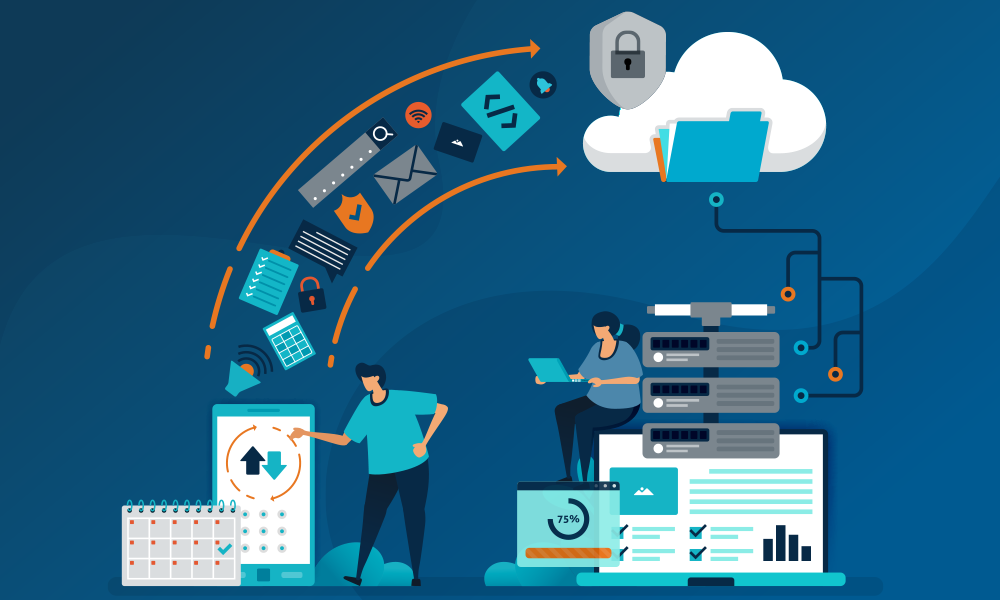
.jpg)
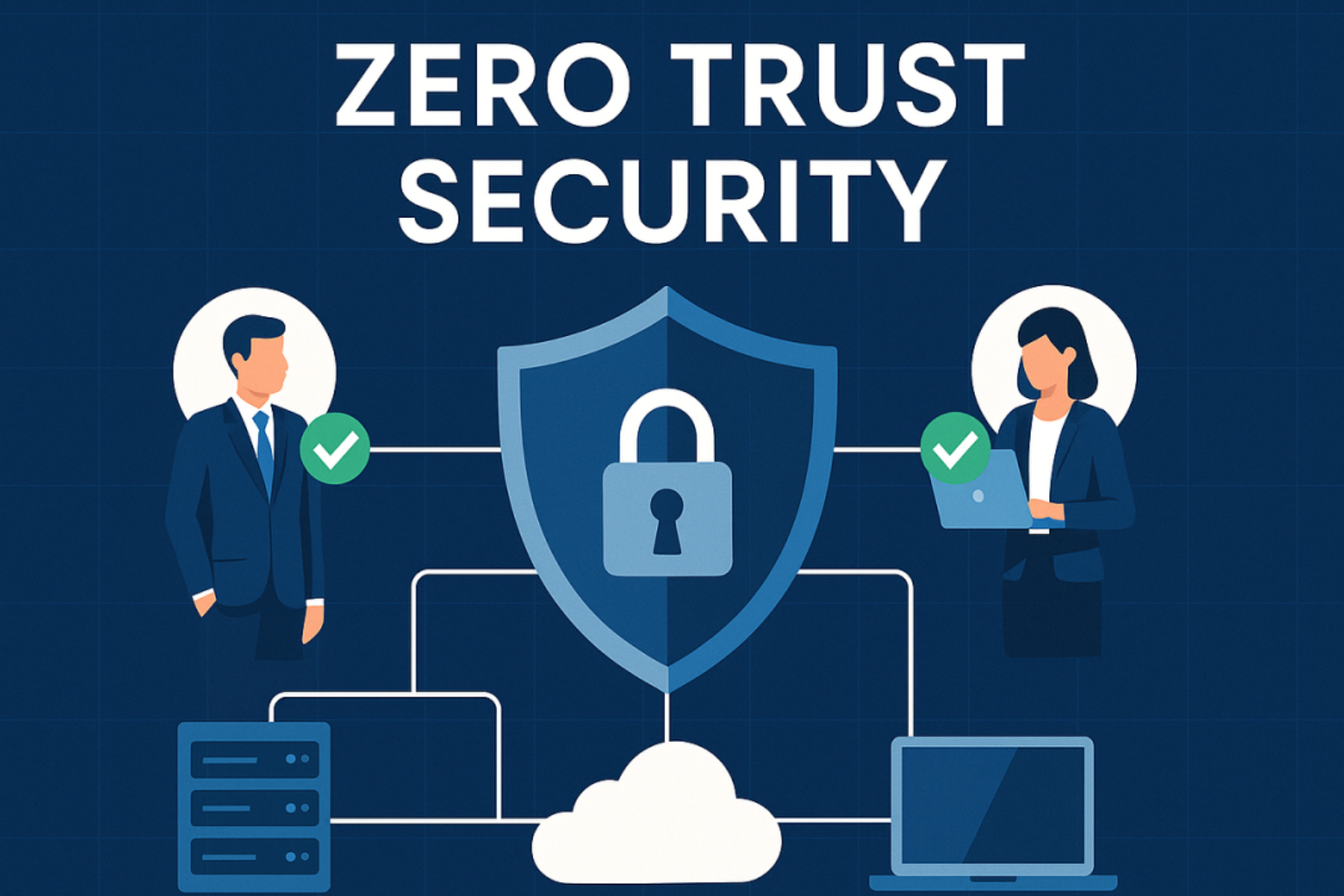
.jpg)


